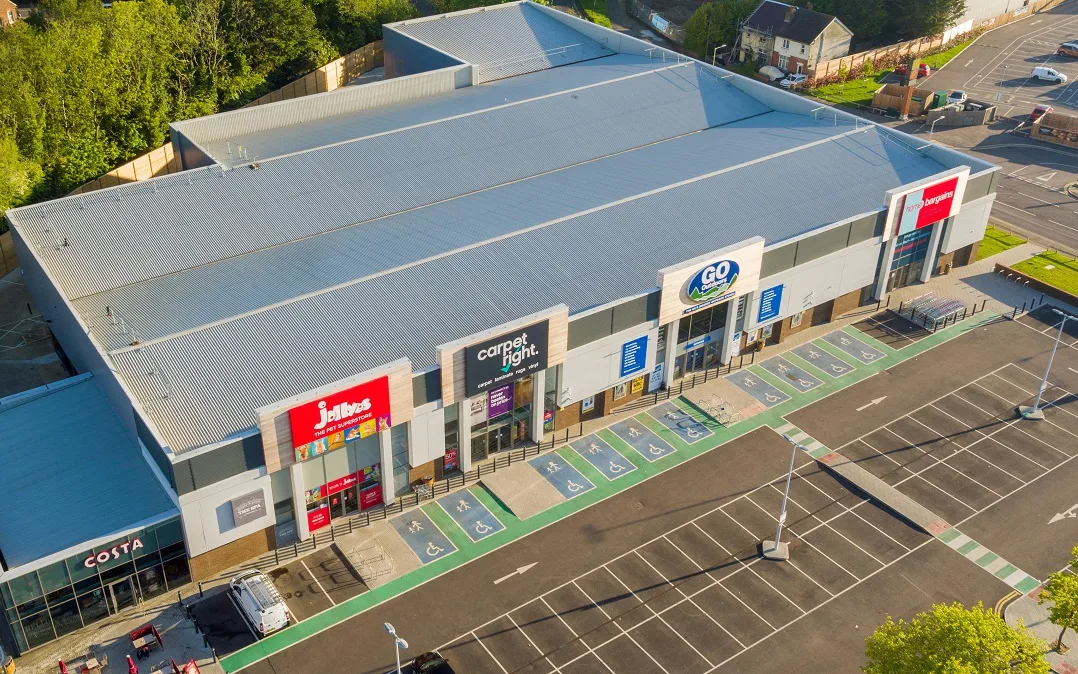October 2010
A warm welcome for new and old faces
The marked increase in activity experienced earlier this year has begun to plateau in many cases, but the position is far more positive than this time last year.
There is growing caution from several retailers who, despite encouraging store acquisition targets and reasonably buoyant trading, are still choosing not to compete with rival offers or to pay premium rents because of the government’s austerity measures, a perceived squeeze on disposable incomes, limited availability of credit and job security.
Yet there are reasons to be optimistic.
On the better retail parks and stronger locations there has been a reduction in landlords’ incentives. This had led to improved net effective rents.
Among the new entrants to the retail warehouse market are Wren Kitchens. It has opened 19 stores and HomeSense, the TK Maxx homewares fascia, has committed itself to 25 stores and wants 10 to 15 more over the next 12 months. It has 75 target locations.
The established contenders that want to expand include John Lewis, Next Home and Liverpool-based Home Bargains, which has opened between 20 and 30 stores this year – no mean feat, because it sells branded food items and needs a planning consent that allows it to sell 30% food – and now wants to expand into the south of England Two other value retailers, Dunelm and the Range, are also acquiring stores. Dunelm is expanding by between 10 and 15 stores a year and the Range is trying to open in larger UK catchments and has six deals in lawyers’ hands at present.
Go Outdoors has opened six stores in the last year, to give it a chain of 23 camping and outdoor shops.
It hopes to open another six in the next 12 months.
The electrical sector is active, too, as traditional brands such as Currys, PC World and Comet combat the threat of Best Buy.
Acquisitions by these and other retailers mean that voids have reduced on better schemes in the last six months. Vacant space on weaker locations are likely to remain available for some time and may even revert to alternative higher-value use.
We are seeing the first signs of the development pipeline returning, because of improved yield profile over the past year and more stable retailer demand.
Nick Howe, Property Week (October 2010)
October 2010
ESH in Good Health
ESH have been appointed by Nuffield Health and Wellbeing as their Property Management consultants.
ESH have been appointed by Nuffield Health and Wellbeing as their Property Management consultants. The company now advises on all aspects of property management affecting their 65 Health clubs together with their screening units and clinics. We receive and audit on the clients behalf all of their rent and service charge demands from their landlords and provide their property management database. The instruction commenced 1st October 2010.
September 2010
Get out of Town
Tim Hornor, partner at Edgerley Simpson Howe, argues that traditional in-town retailers have found out-of-town space relatively easy to adapt and stores cheap to downsize.
“Retailers such as John Lewis, Next and TK Maxx are all taking adapted bulky goods stores. It may not be the preferred option but at least it’s a new store rather than just dreaming about an in town opportunity”. He says. The fact is that out-of-town is there to be done, without lengthy planning battles. Its achievable, rather than waiting for planning to be granted on shopping centre developments and waiting for them to be built”.
Retail park space largely comprises location with bulky goods consent, which has allowed the mainly-furniture store formats offered by John Lewis and Next to grow out of town. For other in-town retailers, the tighter availability of open A1 consent could restrict ambitious growth plans.
And agents suggest that in-town retailers, which have been used to enviable rent concessions and packages over the past couple of years could find the comparatively expensive and competitive nature of the out-of-town market a challenge.
John Maddison, chairman of Accessible Retail, warns: “Some department store retailers have been used to {receiving} big chunks of money for anchoring schemes, but that has never been available out of town.”
So while appropriately sized in-town sites continue to evade the high street fashion giants, any significant move out of town could prove too costly. But with retailers need to grow in an attempt to attract more of the spend from consumers’ ever dwindling cash piles the desire for spare space seems unstoppable.
Tim Hornor, Estates Gazette
September 2010
SWIP sells Clifton Moor RP, York for £37.66m
Clients of Scottish Widows Investment Partnership (SWIP), advised by Edgerley Simpson Howe (ESH) have sold their Clifton Moor Retail Park (Phase 3) in York.
Clients of Scottish Widows Investment Partnership (SWIP), advised by Edgerley Simpson Howe (ESH) and Joiner Cummings have sold their Clifton Moor Retail Park (Phase 3), Hurricane Way in York to client’s of ING advised by CWM for £37.66 million, representing a net initial yield of 5.59%.
The 144,300 sq ft retail park is let to Toys R Us, Comet, JJB Sports, Mothercare, McDonalds, Argos, Currys, Maplin at rents ranging from £21 to £26 per sq ft and has been purchased by West Midlands Metropolitan Authority Pension Fund.
Jo Duffield of ESH said “The price achieved reflects the competition for this type of investment being an open consented park with a strong tenant line up. Clifton Moor is a significant out-of-town destination with two further retail parks, a VUE cinema and Tesco Extra adjacent. The sale for SWIP’s client reflects their strategic investment criteria.”
Edgerley Simpson Howe advised Scottish Widows Investment Partnership..
(Sept 2010)
September 2010
Department stores looking out of town
Last week it was reported that House of Fraser, the department store, is drawing up plans to open out-of-town stores in retail parks – usually the preserve of furniture and electricals retailers.
House of Fraser usually takes space in shopping centres or city high streets.
The reason for the change in strategy? The severe lack of new town centre and shopping centre developments in the UK.
Adam Patrick, partner at out-of-town retail experts Edgerley Simpson Howe, told Property Week magazine: “After years of being able to secure prime, good-quality shopping centre and town centre space, frequently on very favourable financial terms, many of the main department store chains have seen their pipeline of new space significantly reduce.
“It’s now often unviable for developers to make new department store-anchored developments available in the short-to-medium term, mainly due to funding shortages or poor returns. Many of the department stores are still trading very profitably and are keen to trial new formats. Equally, most of the main stores still lack comprehensive geographic coverage throughout the UK. The out-of-town market therefore offers an ideal alternative in which these chains can expand quickly and on a relatively large-format basis.”
The lack of mega-malls could also help drive some retailers back into town centres, which have been so battered by the growth of the edge-of-town shopping centre and supermarket. The economics of smaller stores are harder to make work. But retail observers believe that developers who target market towns could boost struggling economies and provide retailers looking for space with what they want.
Adam Patrick, Sunday Telegraph
September 2010
Standard Life sign Pets at Home in Bury St Edmunds
Standard Life investments, advised by Edgerley Simpson Howe, has let the former Allied Carpets’ store on St Edmundsbury Retail Park, Bury St Edmunds to Pets At Home.
The pet store has taken the 10,345 sq ft unit on a new 15-year lease at a rent of £20 per sq ft.
St Edmundsbury Retail Park is the main out of town scheme in Bury St Edmunds and is fully let to Homebase, Dreams and Carpetright.
Green & Partners represented Pets At Home.
(Oct 2009)


